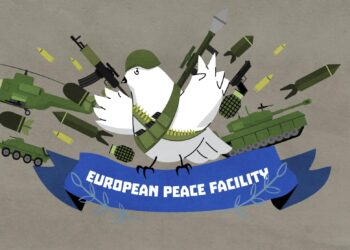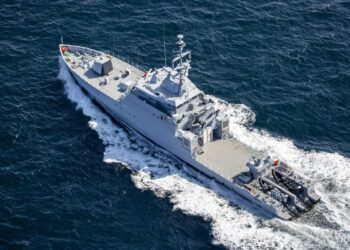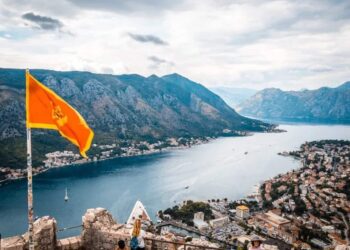Milo Djukanovic: A Political Enigma in Montenegro’s Turbulent Landscape
Milo Djukanovic has long been a central figure in Montenegrin politics, navigating the complexities of a nation at the crossroads of regional ambition and global scrutiny. As a seasoned politician and former president and prime minister, Djukanovic’s influence has shaped Montenegro’s policies and direction for over three decades.Though, his tenure is not without controversy; allegations of corruption, authoritarianism, and ties to organized crime have marred his legacy and raised questions about the integrity of his leadership. The Organized Crime and Corruption Reporting Project (OCCRP) has investigated Djukanovic’s political maneuverings and financial dealings, shedding light on a labyrinth of power dynamics that impact both Montenegro and the broader Balkan region. This article delves into the life and career of Milo Djukanovic, examining the challenges he faces as he attempts to maintain his grip on power amidst rising opposition and a demanding international landscape.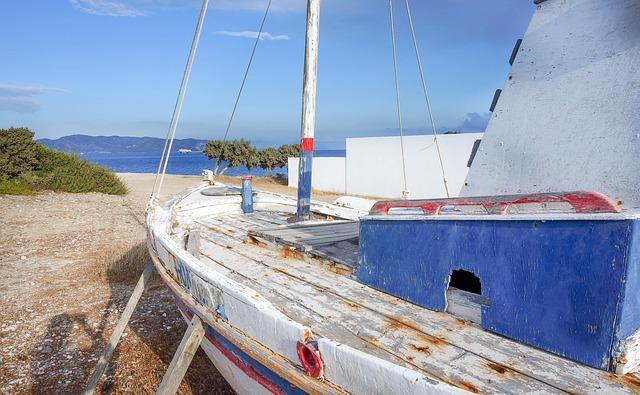
Milo djukanovics Political legacy and Its Impact on Montenegros Democracy
The political legacy of Milo Djukanovic has significantly shaped Montenegro’s governance and democratic evolution as the country gained independence in 2006. His tenure has been marked by strategic maneuvering, both domestically and internationally, where he moved the country closer to European integration while simultaneously embracing a style of leadership that critics describe as increasingly authoritarian. Over the years, Djukanovic has been pivotal in establishing the political structure that allowed him to maintain power, often leveraging his influence within the Democratic Party of Socialists (DPS) and state institutions to consolidate control over key sectors, such as media and law enforcement. This has led to charges of corruption and undermining political pluralism, complicating the country’s democratic landscape.
Despite his controversial governance, Djukanovic’s policies have not gone unnoticed in the international arena. His efforts to foster a pro-European sentiment among Montenegrin citizens have resulted in substantial support from Western allies, which has facilitated significant economic and social reforms. Though,the polarization of politics in Montenegro has also escalated,with opposition parties gaining traction as public dissatisfaction grew regarding issues such as unemployment and perceived state capture. This duality illustrates the complexity of Djukanovic’s impact on Montenegrin democracy, where progress towards European integration coexists with the realities of political disenfranchisement and economic challenges.
| Key Aspects | Impact |
|---|---|
| Consolidation of Power | Critics argue it undermined democratic institutions |
| European Integration Efforts | Fostered international support but increased local opposition |
| Economic Reforms | Mixed results; high unemployment remains |
Corruption Allegations: A Closer Look at Djukanovics Financial Networks
The financial dealings of Milo Djukanovic, a prominent figure in Montenegrin politics, have come under intense scrutiny as allegations of corruption surface. Analysis of his financial networks reveals a complex web of offshore companies and investments that raise questions about transparency and accountability. Recent investigations highlight connections to various international entities,suggesting a perhaps hidden flow of funds that circumvent legal oversight. Some key points to consider include:
- Offshore Accounts: evidence suggests significant assets managed through offshore jurisdictions.
- Shell Companies: Djukanovic’s network allegedly involves multiple shell companies that obscure ownership.
- Political donations: Untraceable financial support for political campaigns linking back to these entities.
Furthermore,several insiders have come forward,alleging that these financial avenues were not just for profit but also served to consolidate power within Djukanovic’s political sphere. As these corruption allegations gain traction, local and international watchdogs are calling for greater scrutiny of his financial activities. A preliminary examination of Djukanovic’s investments includes a breakdown of notable alleged transactions:
| Transaction | Value (Estimated) | Location |
|---|---|---|
| Real Estate Acquisition | €5 million | Budva, Montenegro |
| Offshore Investment Fund | €10 million | The Bahamas |
| Luxury Yacht Purchase | €2 million | Monaco |
The Role of OCCRP in Investigating Djukanovics Activities
The Organized Crime and Corruption Reporting Project (OCCRP) has played a crucial role in uncovering the activities linked to Milo Djukanovic, the long-serving Montenegrin politician. As a collaborative investigative journalism initiative, OCCRP focuses on exposing corruption and organized crime at a global level. Their work regarding Djukanovic has involved:
- In-depth Investigations: Conducting thorough analyses of financial records and political connections.
- Exposing Corruption: Highlighting evidence that links Djukanovic to illicit financial dealings.
- International Collaboration: Partnering with local journalists to gather insights and deepen the examination.
Through meticulous research and the dedication of investigative journalists, OCCRP has revealed alarming patterns in Djukanovic’s governance. Their findings suggest a troubling nexus between state power and corrupt activities, often manifested in:
| activity | Description |
|---|---|
| Money Laundering | Allegations of complex schemes to disguise the origins of illicit funds. |
| Political Patronage | fostering a network of loyalty among officials for personal gain. |
| Media Manipulation | Controlling narratives through media influence to deflect scrutiny. |
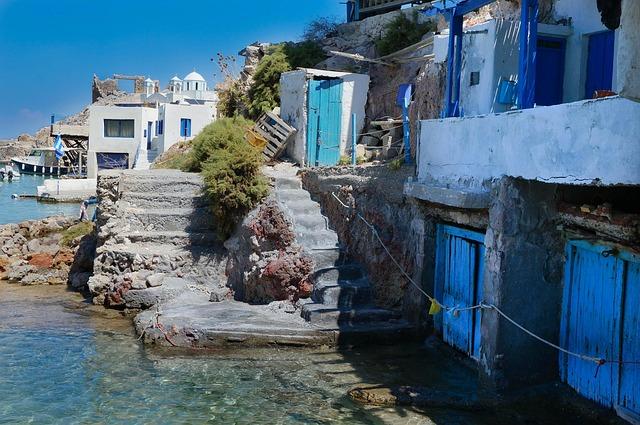
international Response to Djukanovic: Implications for Montenegros Future
The international community’s response to Milo Djukanovic’s recent actions has significant implications for Montenegro’s political landscape. Diplomatic efforts from the European Union and the United states have intensified, highlighting concerns over governance and media freedom in the balkans. The reactions can be categorized into several key areas:
- Sanctions and Diplomatic Pressure: Western nations have hinted at the possibility of implementing targeted sanctions against government officials implicated in corruption.
- Support for Civil Society: Increased funding and support for NGOs advocating for democratic reforms is anticipated, aiming to bolster public accountability.
- Monitoring Elections: There is a strong likelihood of increased international election monitoring ahead of upcoming elections to ensure transparency and fairness.
Moreover, the potential shift in Montenegro’s foreign policy could reshape its alliances in the region. With djukanovic’s government facing scrutiny, the need for a balanced approach will become imperative. Observers note that:
| Potential Outcomes | Implications |
|---|---|
| Strengthened EU Ties | Higher chances of integration, access to funds and programs. |
| Shift Towards Russia | Concerns over increasing geopolitical tensions in the Balkans. |
| Instability | Potential increase in protests and political unrest among citizens. |

Recommendations for Strengthening Governance in the Face of Corruption
To fortify governance against corrupt practices, it is essential to establish a robust framework promoting transparency and accountability. First and foremost, governments should implement mandatory public disclosures for all public officials to reveal any potential conflicts of interest. This should be complemented by strengthened whistleblower protection laws,encouraging citizens to report illicit activities without fear of retribution. Additionally, fostering a culture of civic engagement is vital; citizens must be encouraged to participate actively in political processes and hold leaders accountable through community-based initiatives.
Moreover, international cooperation can enhance the fight against corruption. Establishing partnerships with foreign governments and organizations for knowledge sharing can provide valuable insights into best practices and strategies. It is also crucial to enhance the capacity of independent anti-corruption agencies. These institutions must be adequately funded, staffed with trained professionals, and given real autonomy to investigate and prosecute corrupt practices.Lastly, integrating anti-corruption curricula into educational programs can cultivate future generations that prioritize integrity and ethical standards in governance.

The Path Forward: Ensuring Accountability in Montenegrin Politics
As Montenegrin politics continues to evolve, the need for robust mechanisms to ensure accountability and transparency has never been more apparent. The legacy of leaders like Milo Djukanović has underscored the complexities of governance in a transitional democracy. Moving forward, it is essential to prioritize the establishment of institutional frameworks that promote integrity and public trust. Key areas for focus include:
- Strengthening Anti-Corruption Agencies: Empowering independent bodies to investigate and prosecute corruption.
- Enhancing Electoral Transparency: implementing reforms to ensure fair election processes, including campaign finance regulations.
- Promoting Civic Engagement: Encouraging citizen participation in governance through open forums and community engagement initiatives.
Moreover,fostering a culture of accountability requires the cooperation of various stakeholders,including governmental institutions,civil society organizations,and the media.The establishment of a thorough monitoring mechanism to assess adherence to legal and ethical standards can play a critical role in this process. Below is a brief overview of potential accountability measures:
| Accountability Measure | Description |
|---|---|
| Public Audits | Regular audits of public funds to prevent misuse. |
| Whistleblower Protection | Safeguarding individuals who report misconduct from retaliation. |
| Media Freedom | Ensuring a free press to hold power to account and inform the public. |
To Wrap It Up
Milo Djukanovic’s complex legacy is a telling reflection of Montenegro’s turbulent political landscape. As a pivotal figure who has navigated the intertwining waters of nationalism, governance, and international relations, Djukanovic’s trajectory offers valuable insights into the evolving nature of power in the Balkans. His enduring influence, marked by both significant accomplishments and controversies, highlights the challenges facing Montenegro as it seeks to carve out its path in a region with a fraught history and a precarious future. As the country grapples with issues of corruption, governance, and EU integration, the role of figures like Djukanovic will undoubtedly continue to shape the dialog around these critical themes. The investigations and reports from organizations like the Organized Crime and Corruption Reporting Project (OCCRP) serve as crucial resources in uncovering the layers of influence and accountability in Montenegro’s political sphere, reinforcing the importance of transparency in governance for the country’s prospects moving forward.





